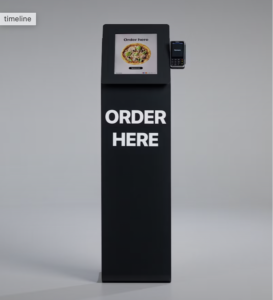I check email more often than I should, and more often than I enjoy. I am not alone in this. I have clients and friends who check their email up to 100 times per day. Some, even more. Given the amount of pleasure that email actually delivers, it seems that the urge to check it is disproportionally high and out of sync with reality and well-being (and possibly sanity). Most of the emails I receive are junk and go straight into the trash. Some are reminders of tasks that I need to address or events/opportunities that I should know about (and buy tickets for) but don’t really want to know about. And the smallest percentage, a few here and there, are notes from friends, family, or colleagues that I am actually happy to receive. Because of the glaring disconnect between the experience of email and our relentless desire to check it, I started asking the following questions, “Why do we check email so often?” and “What are we really hoping to find in these little electronic Post-its?”
Email triggers a part of the brain that I call “lottery brain.” It is the part of the brain that produces the thought/hope/belief that miracles can happen, and specifically, to us — personally. To some degree, “lottery brain” is an adaptive part of us, as it inspires hope and a sense of possibility, as long as that hope is also supported by proactive agency in our behavior. When I asked people what they were secretly hoping to find in their email, what the lottery email would be, I was told everything from:
“An old sweetheart, the one who got away, saying that he/she needed to see me.”
“A family member/friend finally apologizing to me for what he/she did to me.”
“News that a windfall of money is owed to me.”
“A perfect job/professional offer from someone who happened to discover me.”
“An acknowledgment of a piece of work or good deed that I did.”
“A note expressing my importance in someone’s life.”
“A love letter from my husband.”
“A note of gratitude/expression of love from a child.”
There were others, but most fell into one of these general categories. Regardless of the answer, just asking the questions, “Who would we really want to hear from? What would we really hope for?” is a wonderful exercise and can help us understand ourselves better.
Lottery brain is susceptible to addictions. The fact that it doesn’t make sense — our checking something every 15 minutes that has never or rarely provided the result that we are hoping for — is irrelevant. It doesn’t need to make sense. In fact, its non-sense-making nature is part of its seduction. Miracles don’t make sense, and still they happen. Don’t they? Email is also addictive because it contains what I see as the four features of highly habitual/addictive behaviors:
1. Attention, specifically, attention is focused, but mindful presence is NOT necessary.
2. Distraction is readily offered. We are successfully pulled away from whatever we were (or were not) doing.
3. Hands. We use our hands in executing the task (which I surmise is related to the evolutionary importance of hands as a tool).
4. Delight is possible through the behavior (lottery mind). Its acronym makes for an ironic ADHD (which bears no relationship to attention deficit hyperactive disorder). Behaviors with these four features have a great capacity to hook us and hypnotize us into paying a lot of attention to something that doesn’t justify the time and energy invested.
If we were rats in a cage whose food only slid down the chute when we opened an email that made us feel better, would we keep checking, or move on to another task that delivered food more efficiently? Probably we would move on and start banging our paws or flitting our whiskers on some other surface. We keep at it because (in many cases) we are addicted, which means that we are not making wise or thoughtful decisions but rather are following a kind of primal urge, which has trumped the part of the mind that can choose whether to check or not to check.
In the grand scheme, does checking email really matter? Is email (or text) addiction even important enough to understand or try to tackle? I believe that the answer is an emphatic yes, and no less worthy of our attention than drug, alcohol, food, sex or any other addiction. Every addiction, no matter its lure, pulls us out of our lives and out of the present moment. Knowing that we can always check, we become more distracted and more dependent upon something external to escape whatever we don’t want to feel or do. We can’t or don’t stop doing something that no longer nourishes us, and that we don’t want to keep doing. Slowly, we start to lose or abandon other important parts of our life in order to be able to engage more fully in our addiction.
The first step in breaking any addiction is awareness. We can start by simply noticing the impulse to check when it arises, pausing before checking, and asking ourselves, “Why do we want to check in this moment?” “Is there an email we are expecting, needing or hoping for?” “Is there something we are feeling or doing that we want to get away from?” “Are we bored and looking for a place to put our attention?” Getting to know the beast is the first step in taming the beast. I know that I personally feel significantly better when I check less — less distracted, anxious and agitated, more grounded and present, with far more interesting ideas (that I can actually finish). And so, regardless of whether you feel yourself to be addicted to checking email (or text messages for that matter), I offer this inquiry as a step in the direction of feeling well. Investigating our impulses, whatever they might be and however often they might arise, is a path to becoming more self-aware, which is always a worthy pursuit, and the natural antidote to all addiction.


